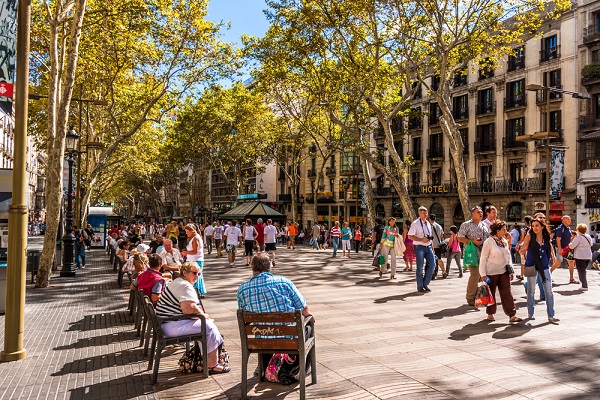In a significant demonstration against mass tourism in Barcelona, protesters took an unorthodox approach using water pistols to target tourists, highlighting local discontent.
- Protestors in Barcelona targeted tourists dining in the popular La Ramblas district with water pistols, indicating intensifying local frustration.
- Approximately 3,000 residents participated in a rally seeking to curb tourism, pointing to a broader trend across Spanish tourist hotspots.
- The rise in tourism accommodations has contributed to a dramatic property price surge, fuelling local grievances.
- Barcelona’s mayor has affirmed a commitment to addressing mass tourism’s impact, amidst growing calls for sustainability.
Crowds of anti-tourism demonstrators in Barcelona employed water pistols to soak holidaymakers enjoying meals at local restaurants. This unusual tactic underscored the protesters’ dissatisfaction with the pervasive issue of mass tourism, which many residents believe disrupts local life. In the well-frequented La Ramblas district, diners became the focus of this lively protest, as participants also symbolically barricaded establishments as part of their demonstration.
A substantial turnout of nearly 3,000 residents took to the streets, advocating for a reduction in tourist numbers. Their march represents just one instance in a series of ongoing protests across Spain, highlighting a widespread movement against the unchecked expansion of tourism in popular regions.
A key factor exacerbating tensions is the rise of tourism rental properties, which has been linked to a 61% increase in property values in Barcelona from 2013 to 2023. This inflationary pressure has priced many locals out of the housing market, intensifying discontent and calls for regulatory intervention. The local populace is demanding a shift towards a more sustainable tourism model.
Barcelona’s mayor, Jaume Collboni, took to social media during the protest to declare his administration’s “firm commitment to limiting mass tourism and its consequences.” His statements resonate with the growing calls for sustainable tourism practices that protect residents’ quality of life while accommodating economic interests.
Discontent with over-tourism is not confined to Barcelona alone. Similar protests have erupted in other Spanish locations, such as Malaga, Palma, and across the Canary Islands in recent months. This trend marks a significant shift in public sentiment towards finding balance between tourism and community welfare.
The growing unrest in Spanish tourist hotspots underscores the urgent need for sustainable tourism practices.

